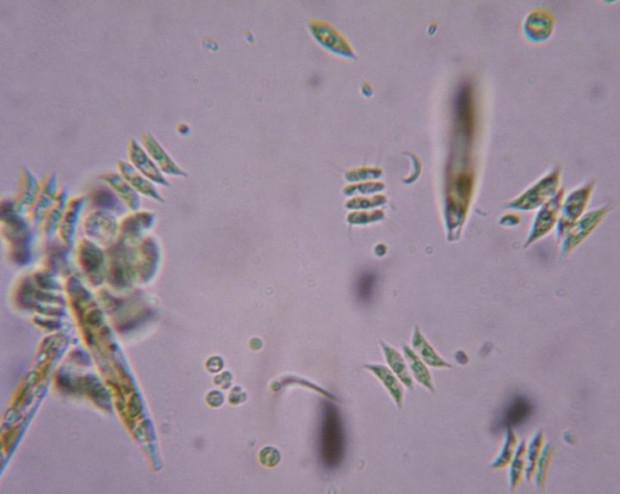438
Stupidity can be caught
To pick up a stupid lot of sense not nado
it believed that stupidity is not contagious. But it turns out this is not true. The researchers found that the body of some people there is a virus that is directly related to lower cognitive (thought-) abilities of these people. And when the virus infected mice, they revealed that they spend a lot more time to explore the maze of his proposed than in healthy individuals.
The researchers stumbled upon the discovery quite unexpectedly, when they took swabs from the throat of people to assemble «virome», ie the genetic profile of all the viruses that live in the body.
During the analysis, researchers were surprised to have found some way of DNA swabs chlorella ATCV-1 virus, widespread in the aquatic environment, but never infect animals and humans.

However, virus was detected in 40 of 92 subjects. It seemed that the age, gender, race and other factors did not affect the likelihood of a person infected with the virus.
Opening require further study, so the researchers decided to test the virus can affect mice. They infected mice 30 ATCV-1 virus, and placed them in a few test mazes. Infected mice took much more time to explore the maze of its device, compared with non-infected mice in the control group.
ATCV-1 is found in most major reservoirs. Thus, contact with the virus almost everything, but why some people get them and others do not is still unknown.
At the same time, it is very unusual example of how microbes may affect the human brain. Robert Yolken, a virologist who led the study:

it believed that stupidity is not contagious. But it turns out this is not true. The researchers found that the body of some people there is a virus that is directly related to lower cognitive (thought-) abilities of these people. And when the virus infected mice, they revealed that they spend a lot more time to explore the maze of his proposed than in healthy individuals.
The researchers stumbled upon the discovery quite unexpectedly, when they took swabs from the throat of people to assemble «virome», ie the genetic profile of all the viruses that live in the body.
During the analysis, researchers were surprised to have found some way of DNA swabs chlorella ATCV-1 virus, widespread in the aquatic environment, but never infect animals and humans.

However, virus was detected in 40 of 92 subjects. It seemed that the age, gender, race and other factors did not affect the likelihood of a person infected with the virus.
Opening require further study, so the researchers decided to test the virus can affect mice. They infected mice 30 ATCV-1 virus, and placed them in a few test mazes. Infected mice took much more time to explore the maze of its device, compared with non-infected mice in the control group.
ATCV-1 is found in most major reservoirs. Thus, contact with the virus almost everything, but why some people get them and others do not is still unknown.
At the same time, it is very unusual example of how microbes may affect the human brain. Robert Yolken, a virologist who led the study:

"This is a striking example, showing that" harmless "bacteria, which we are carriers, can seriously influence our behavior and ability to learn».
blockquote>
via factroom.ru
Why do we cry with happiness?
35 most popular "facts" you'll ever need, who have nothing to do with the truth
























